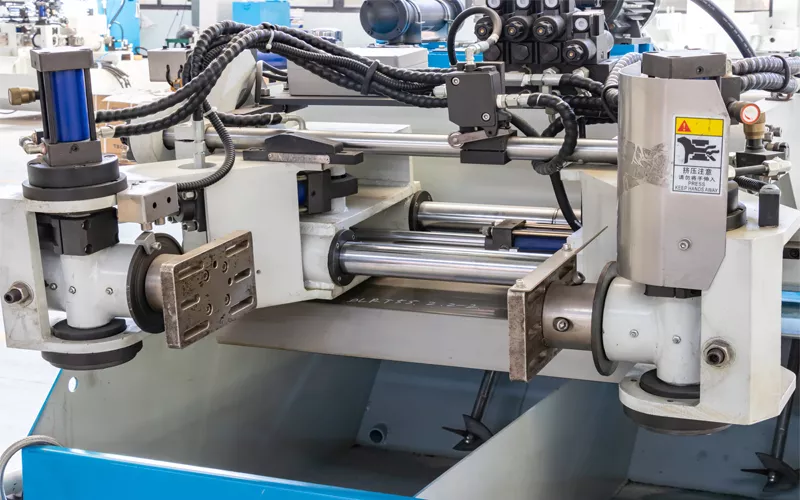In today’s competitive manufacturing world, precision and quality are vital. One of the most effective technologies ensuring both is the metal vacuum casting machine. This advanced equipment has transformed the production of metal components, offering exceptional accuracy and superior finishes. While traditional metal casting machines are still in use, vacuum casting has become a preferred choice for industries aiming for flawless, high-performance parts.
What is a Metal Vacuum Casting Machine?
A metal vacuum casting machine is specialized equipment that uses vacuum pressure to eliminate air bubbles and impurities during the casting process. Unlike conventional metal casting machines, this method ensures that molten metal fills every cavity of the mold precisely. This results in components with minimal porosity, enhanced strength, and superior surface quality.
Industries such as aerospace, automotive, and medical manufacturing rely heavily on this technology due to its precision and ability to create complex designs.
Advantages of Using Metal Vacuum Casting Machine
1. Exceptional Quality and Accuracy
The primary advantage of a metal vacuum casting machine is its ability to deliver exceptional accuracy. By removing trapped air during casting, it ensures every detail of the mold is captured perfectly. This is particularly beneficial for industries requiring intricate parts with tight tolerances.
2. Improved Mechanical Properties
Unlike standard metal casting machines, vacuum casting enhances the mechanical strength of components. Reduced porosity means higher durability, resistance to stress, and overall improved performance in critical applications.
3. Flawless Surface Finishing
One of the notable benefits of a metal vacuum casting machine is the smooth surface finish it offers. This reduces or even eliminates the need for secondary machining processes, saving both time and cost in production.
Metal Casting Machine vs. Metal Vacuum Casting Machine
While both technologies serve the purpose of creating metal parts, the metal vacuum casting machine stands out for its precision and reliability.
-
A metal casting machine pours molten metal into a mold using gravity or pressure, but it often leaves tiny air pockets.
-
A metal vacuum casting machine, on the other hand, uses vacuum pressure to completely remove air and gases, creating denser and more durable parts.
This distinction makes vacuum casting the preferred choice for industries where structural integrity is critical.
Applications of Metal Vacuum Casting Machine
The metal vacuum casting machine is used across multiple industries:
Aerospace Industry
Aircraft components must be lightweight yet extremely strong. The metal vacuum casting machine produces parts with exceptional density and zero defects, ensuring safety and performance in high-stress environments.
Automotive Industry
Modern vehicles rely on complex and durable metal components. With a metal vacuum casting machine, manufacturers can produce engine parts, gear housings, and structural components with high precision.
Medical Equipment Manufacturing
For medical tools and implants, precision is non-negotiable. The metal vacuum casting machine ensures biocompatible metals are cast with perfect accuracy and consistency.
Industrial Machinery
High-performance industrial equipment often requires components made with the metal vacuum casting machine for their durability and reliability in demanding conditions.
Why Metal Vacuum Casting Machine is the Future
As manufacturing moves toward higher efficiency and zero defects, the metal vacuum casting machine continues to gain popularity. It is an ideal solution for producing low- to medium-volume batches of high-quality parts, especially where intricate geometries and high strength are required.
Unlike conventional metal casting machines, vacuum casting also supports modern alloys and specialty metals, allowing for greater flexibility in production.
Choosing the Right Metal Vacuum Casting Machine
When selecting a metal vacuum casting machine, consider factors such as:
-
Capacity and Size: Depending on production needs, choose a machine that can handle the required volume.
-
Automation Level: Modern metal vacuum casting machines often come with automated features to reduce labor costs and human error.
-
Material Compatibility: Ensure the machine supports the alloys and metals used in your industry.
By investing in the right equipment, manufacturers can ensure precision, efficiency, and scalability in their production lines.
Conclusion
The metal vacuum casting machine has become a cornerstone of modern manufacturing. With its ability to deliver defect-free, high-strength parts, it outperforms traditional metal casting machines in every aspect. For industries that demand precision and quality, adopting this technology is no longer optional—it’s a necessity.
By leveraging the benefits of a metal vacuum casting machine, businesses can stay competitive, meet stringent industry standards, and achieve consistent production excellence. As technology evolves, the role of vacuum casting will only continue to grow, making it an indispensable tool for manufacturers worldwide.

